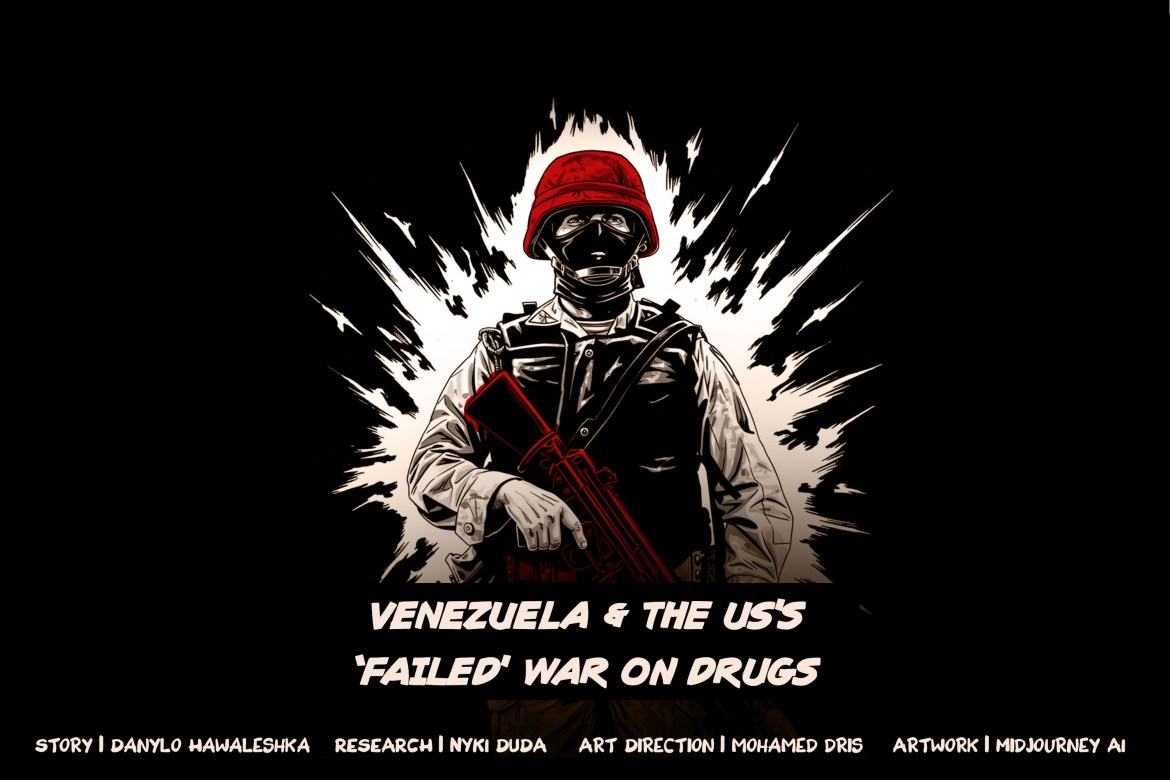
Venezuela and the US’s ‘failed’ war on drugs | Gallery News | Al Jazeera

The Ongoing Struggle: Venezuela and the US’s ‘Failed’ War on Drugs
The longstanding conflict surrounding drug trafficking and its regulation has been a significant issue in the Americas, particularly in Venezuela. The United States has often positioned itself as a leader in the so-called “war on drugs,” a campaign that has faced widespread criticism for its effectiveness and implications on foreign relations. This article delves into the complexities of this war, especially as it pertains to Venezuela, and examines the broader implications of U.S. policy in the region.
Historical Context of the War on Drugs
The “war on drugs” began in the 1970s, with the U.S. government launching initiatives aimed at reducing drug use and trafficking. This campaign has been marked by aggressive law enforcement, military interventions, and international cooperation. However, critics argue that these measures have often resulted in more harm than good, particularly in Latin America, where the consequences of U.S. policies have led to increased violence, corruption, and instability.
In Venezuela, the impact of the war on drugs has been significant. The country has become a major transit point for cocaine, primarily produced in neighboring Colombia. The U.S. has frequently accused Venezuelan officials of complicity in drug trafficking, further complicating diplomatic relations between the two nations.
U.S. Pressure on Venezuela
The U.S. has consistently exerted pressure on Venezuela regarding its drug policies. This has included sanctions against Venezuelan officials accused of drug trafficking and other illicit activities. The U.S. government has labeled Venezuela as a “narco-state,” alleging that the government has turned a blind eye to drug trafficking in exchange for financial support from drug cartels.
This characterization has been met with skepticism by some analysts, who argue that it serves as a justification for U.S. intervention in Venezuelan affairs. Critics contend that the U.S. narrative oversimplifies a complex situation, where economic instability, political polarization, and social unrest play significant roles in the country’s challenges.
The Consequences of U.S. Policies
The ramifications of the U.S.’s war on drugs extend beyond mere accusations. The aggressive stance taken by Washington has led to a deterioration of relations with Caracas, complicating efforts for dialogue and cooperation. Venezuelan President Nicolás Maduro has often used U.S. sanctions and accusations as a rallying point, portraying the U.S. as an imperial power seeking to undermine Venezuelan sovereignty.
Moreover, the militarization of the war on drugs has resulted in tragic consequences. In Venezuela, as in other Latin American countries, the fight against drug trafficking has frequently led to violent confrontations between law enforcement and criminal organizations. This violence has claimed numerous lives, including those of innocent civilians caught in the crossfire.
A Cycle of Failure
Despite decades of effort and substantial financial investment, the war on drugs has largely failed to achieve its stated goals. Drug production and trafficking continue to thrive in many parts of Latin America, including Venezuela. The U.S. government’s approach has often been criticized as reactionary and punitive, focusing primarily on enforcement rather than addressing the underlying socio-economic factors that contribute to drug trafficking.
In Venezuela, the economic crisis has exacerbated the drug problem. With soaring inflation and widespread poverty, many individuals are driven to participate in the drug trade as a means of survival. This reality complicates the narrative of a straightforward battle against drug traffickers, as many involved are not criminals by choice but rather victims of circumstance.
The Role of International Cooperation
Addressing the drug issue in Venezuela requires a nuanced approach that goes beyond punitive measures. International cooperation is essential in developing comprehensive strategies that tackle the root causes of drug trafficking. This includes investing in social programs, improving economic opportunities, and fostering political stability.
The U.S. has made some efforts to collaborate with other nations in combating drug trafficking, but these initiatives often fall short of addressing the complexities of the issue. A more holistic strategy that involves local communities, governments, and international partners is necessary to create sustainable solutions.
Conclusion: Rethinking the War on Drugs
The war on drugs, particularly in the context of Venezuela, highlights the challenges of a one-size-fits-all approach to complex social issues. The U.S. has long been criticized for its imperialistic tendencies in Latin America, and the drug war is often cited as an example of this hypocrisy.
Moving forward, it is crucial for policymakers to rethink their strategies and adopt a more collaborative approach that prioritizes human rights and economic development. Only through understanding and addressing the root causes of drug trafficking can meaningful progress be made in the fight against drugs in Venezuela and beyond.
Key Facts
– The U.S. war on drugs began in the 1970s, focusing on reducing drug use and trafficking.
– Venezuela has become a significant transit point for cocaine, primarily from Colombia.
– The U.S. has accused Venezuelan officials of complicity in drug trafficking, labeling the country a “narco-state.”
– U.S. policies have led to increased violence and instability in Venezuela.
– The war on drugs has largely failed to achieve its goals, with drug production and trafficking continuing to thrive.
– A more nuanced approach involving international cooperation and addressing socio-economic factors is essential for progress.
Source: www.aljazeera.com
